 W
WThe members of the Westminster Assembly of Divines, sometimes known collectively as the Westminster Divines, are those clergymen who participated in the Assembly that drafted the Westminster Confession of Faith. The Long Parliament's initial ordinance creating the Westminster Assembly appointed 121 ministers of the Church of England to the Assembly, as well as providing for participation on the part of 30 lay assessors, as well as six Commissioners representing the Church of Scotland. Of the original 121 divines, approximately 25 never took their seats in the Assembly. The Parliament subsequently added 21 additional ministers to the Assembly to replace those ministers who did not attend, or who had died or become ill since the calling of the Assembly.
 W
WSimeon Ashe or Ash was an English nonconformist clergyman, a member of the Westminster Assembly and chaplain to the Parliamentary leader Edward Montagu, 2nd Earl of Manchester.
 W
WSamuel Bolton was an English clergyman and scholar, a member of the Westminster Assembly and Master of Christ's College, Cambridge.
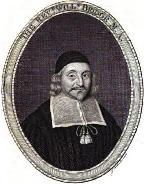 W
WWilliam Bridge was a leading English Independent minister, preacher, and religious and political writer.
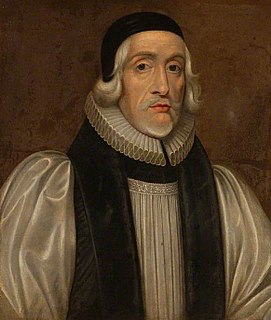 W
WRalph Brownrigg or Brownrig (1592–1659) was bishop of Exeter from 1642 to 1646. He spent that time largely in exile from his see, which he perhaps never visited. He did find a position there for Seth Ward. He was both a Royalist in politics, and a Calvinist in religion, an unusual combination of the period. Brownrigg opposed Laudianism in Cambridge during the 1630s and at the Short Parliament Convocation of 1640. Nominated to the Westminster Assembly, he apparently took no part in it.
 W
WJeremiah Burroughs was an English Congregationalist and a well-known Puritan preacher.
 W
WEdmund Calamy was an English Presbyterian church leader and divine. Known as "the elder", he was the first of four generations of nonconformist ministers bearing the same name.
 W
WJoseph Caryl was an English ejected minister.
 W
W(Thomas Case was also an Oxford professor of philosophy.)
 W
WRev. John Conant D.D. was an English clergyman, theologian, and Vice-Chancellor of Oxford University.
 W
WJohn Earle was an English bishop.
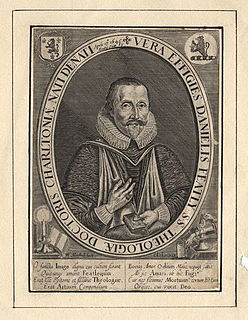 W
WDaniel Featley, also called Fairclough and sometimes called Richard Fairclough/Featley, was an English theologian and controversialist. A leading Calvinist disputant of the 1620s, he fell into difficulties with Parliament due to his loyalty to Charles I in the 1640s, and he was harshly treated and imprisoned at the end of his life.
 W
WThomas Gataker was an English clergyman and theologian.
 W
WThomas Goodwin, known as "the Elder", was an English Puritan theologian and preacher, and an important leader of religious Independents. He served as chaplain to Oliver Cromwell, and was imposed by Parliament as President of Magdalen College, Oxford, in 1650. Christopher Hill places Goodwin in the "main stream of Puritan thought".
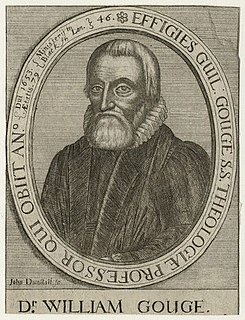 W
WWilliam Gouge (1575–1653) was an English Puritan clergyman and author. He was a minister and preacher at St Ann Blackfriars for 45 years, from 1608, and a member of the Westminster Assembly from 1643.
 W
WWilliam Greenhill (1591–1671) was an English nonconformist clergyman, independent minister, and member of the Westminster Assembly.
 W
WJohn Hacket was an English churchman, Bishop of Lichfield and Coventry from 1661 until his death.
 W
WHenry Hammond was an English churchman, who supported the Royalist cause during the English Civil War.
 W
WJohn Harris (Harrys) (c.1588–1658) was an English academic and clergyman. He was Regius Professor of Greek at Oxford, long-time Warden of Winchester College, and a member of the Westminster Assembly.
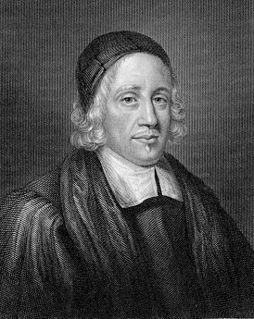 W
WJohn Lightfoot was an English churchman, rabbinical scholar, Vice-Chancellor of the University of Cambridge and Master of St Catharine's College, Cambridge.
 W
WChristopher Love was a Welsh Presbyterian preacher and activist during the English Civil War. In 1651, he was executed by the English government for plotting with the exiled Stuart court. The Puritan faction in England considered Love to be a martyr and hero.
 W
WRichard Love (1596–1661) was an English churchman and academic, Master of Corpus Christi College, Cambridge, Lady Margaret's Professor of Divinity, member of the Westminster Assembly, and Dean of Ely.
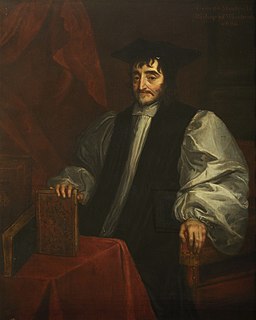 W
WGeorge Morley was an English Anglican bishop, Bishop of Worcester and then of Winchester.
 W
WWilliam Nicholson was an English clergyman, a member of the Westminster Assembly and Bishop of Gloucester.
 W
WPhilip Nye was a leading English Independent theologian and a member of the Westminster Assembly of Divines He was the key adviser to Oliver Cromwell on matters of religion and regulation of the Church.
 W
WHerbert Palmer (1601–1647) was an English Puritan clergyman, member of the Westminster Assembly, and President of Queens' College, Cambridge. He is now remembered for his work on the Westminster Shorter Catechism, and as a leading opponent of John Milton's divorce tracts.
 W
WEdward Reynolds was a bishop of Norwich in the Church of England and an author. He was born in Holyrood parish in Southampton, the son of Augustine (Austin) Reynolds, one of the customers of the city, and his wife, Bridget.
 W
WRobert Sanderson was an English theologian and casuist.
 W
WHenry Scudder was an English minister of presbyterian views, known as a devotional writer, and member of the Westminster Assembly.
 W
WObadiah Sedgwick (1600?–1658) was an English clergyman of presbyterian views, and a member of the Westminster Assembly.
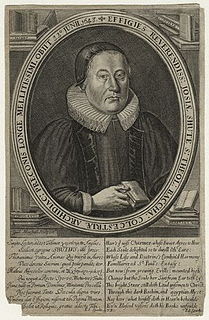 W
WJosias Shute (1588–1643) was an English churchman, for many years rector of St Mary Woolnoth in London, archdeacon of Colchester, and elected a member of the Westminster Assembly.
 W
WSidrach Simpson (c.1600-1655) was an English Independent minister, one of the leaders of the Independent faction in the Westminster Assembly.
 W
WPeter Sterry was an English independent theologian, associated with the Cambridge Platonists prominent during the English Civil War era. He was chaplain to Parliamentarian general Robert Greville, 2nd Baron Brooke and then Oliver Cromwell, a member of the Westminster Assembly, and a leading radical Puritan preacher attached to the English Council of State. He was made fun of in Hudibras.
 W
WAnthony Tuckney was an English Puritan theologian and scholar.
 W
WWilliam Twisse was a prominent English clergyman and theologian. He was named Prolocutor of the Westminster Assembly in an Ordinance dated 12 June 1643, putting him at the head of the churchmen of the Commonwealth. He was described by a Scottish member, Robert Baillie, as "very good, beloved of all, and highlie esteemed; but merelie bookish".
 W
WJohn Wallis was an English clergyman and mathematician who is given partial credit for the development of infinitesimal calculus. Between 1643 and 1689 he served as chief cryptographer for Parliament and, later, the royal court. He is credited with introducing the symbol ∞ to represent the concept of infinity. He similarly used 1/∞ for an infinitesimal. John Wallis was a contemporary of Newton and one of the greatest intellectuals of the early renaissance of mathematics.
 W
WSamuel Ward (1572–1643) was an English academic and a master at the University of Cambridge. He served as one of the delegates from the Church of England to the Synod of Dort.
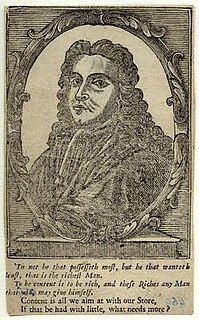 W
WJohn White was an English clergyman and the rector of a parish in Dorchester, Dorset. He was instrumental in obtaining charters for the New England Company, and the Massachusetts Bay Company. He took a personal interest in the settlement of New England.